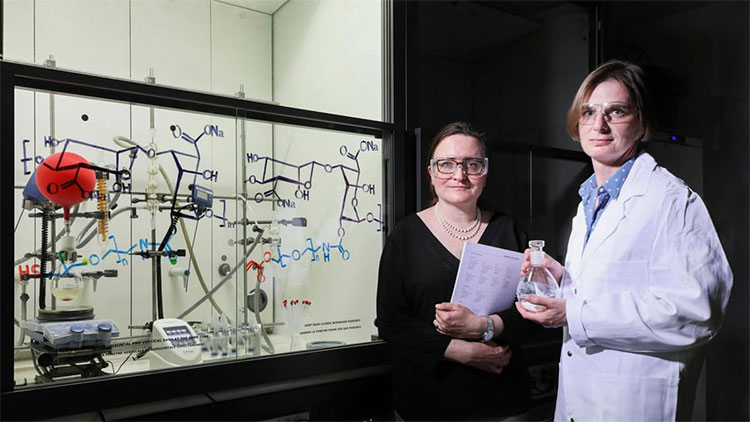Use gel from brown algae and soluble polymer to protect donated tissue
Swiss scientists have successfully solved the problem of immune system attack and rejection by using a protective hydrogel , prepared on the basis of sodium alginate from brown algae and polymers Soluble in water to wrap donated tissue.
This achievement helps address the lack of donor tissue in organ transplantation and eliminates the need for immunosuppressive drugs after transplantation.

With the help of Natalia Giovannini of the Technology Transfer Office (left), the hydrogel is developed and patented, patented and tested by Sandrine Gerber - (Photo: Alain Herzog).
According to Mirage News, medicine has long had to deal with the fact that the implants are attacked and eliminated by the immune system. Therefore, the tissue must struggle to survive in the host environment. This has led to a shortage of suitable implants for patients with dysfunctional cells and organs, making researchers alternative strategies. An idea that several research teams have worked in recent years is to wrap donor cells, and even animal cells, with a semi-permeable gel to protect against attack, and to make sense is that patients can receive donor tissue without having to take immunosuppressive drugs.
Recently, Swiss scientists have found a way to remedy transplant rejection through testing with pancreatic islet cells. They proposed using a protective hydrogel, prepared on the basis of sodium alginate from brown algae and water-soluble polymers.
The gel acts as a selective filter, blocking immune system cells and antibodies, but allowing oxygen and other molecules to pass through in both directions. This allows normal cell metabolism and cells to survive. The gel also allows cells to secrete metabolic products such as insulin, which opens up promising applications for the treatment of physical diabetes 1.
The gel forms a soft and mechanically cocoon, which protects the implant cells, while limiting inflammation in the body, because inflammation interferes with the implant's activity and promotes tissue formation. scar.
Technology has now been transferred to Cell-Caps SA, a Geneva-based start-up company that specializes in the treatment of diabetes by researchers at the University Hospital of Geneva, Switzerland.
- Donated blood is only good for 3 weeks
- Chinese sea is covered with algae covering nearly 29,000 km2
- Use amniotic sac tissue to protect and cultivate damaged cornea
- How Russians handle oil spills on the sea
- Giant algae surrounds Antarctica
- Discover algae fraud
- Video: The threat of blue algae blooms in the rivers and lakes
- Thermal conductive polymer cools electronic devices
- Giant green algae blooms
- Finding a new polymer can solve the plastic waste crisis
- Anti-garbage with shells 'bottles' of edible water
- Killing algae in a snap appearing on six French beaches
 13 causes of non-itchy rash
13 causes of non-itchy rash How the mouse with human ears changed the world?
How the mouse with human ears changed the world? The truth about 'fried rice syndrome!
The truth about 'fried rice syndrome! What is dental implant?
What is dental implant?